Best Romanian history movies
Get ready to binge. We've found a collection of must-watch history films from Romania, now streaming on Netflix, HBO, Hulu, Prime Video, and other top services!
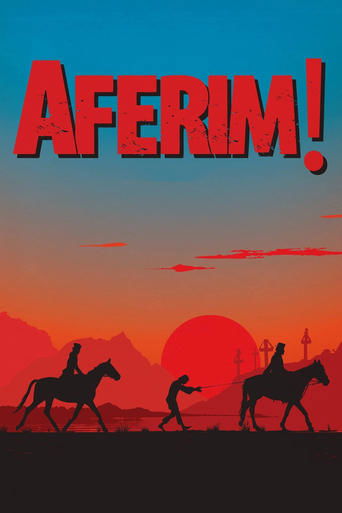
Aferim! 2015
Set in early 19th century Wallachia, Romania, a policeman, Costandin, is hired by a nobleman to find a Gypsy slave who has run away from his estate after having an affair with his wife.
69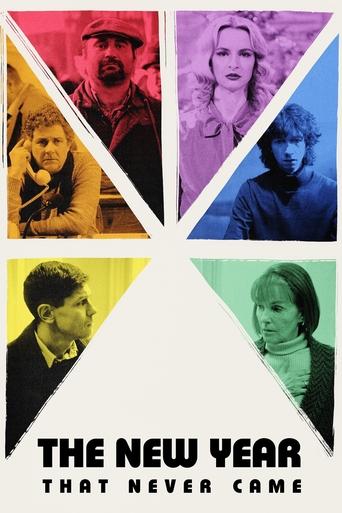
The New Year That Never Came 2024
The New Year That Never Came is a tragicomedy whose action takes place in a single day, before the counter-revolution of 1989, in which the characters search for normality, safety, love, freedom and meaning in an absurd world.
79
Silent Wedding 2008
In a small village of Communist-era Romania a young couple wish to marry, but Joseph Stalin dies the night prior to their wedding ceremony forcing the bride and groom to marry in silence.
77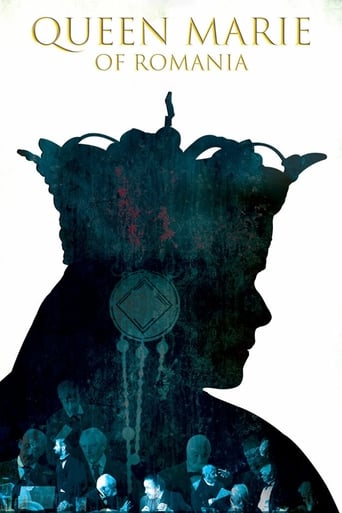
Queen Marie of Romania 2019
Devastated by the First World War and plunged into political controversy, Romania's every hope accompanies its Queen on her mission to Paris, to lobby for its great unification's international recognition at the 1919 Peace Talks.
70
I Do Not Care If We Go Down in History as Barbarians 2018
"I do not care if we go down in history as barbarians." These words, spoken in the Council of Ministers of the summer of 1941, started the ethnic cleansing on the Eastern Front. The film attempts to comment on this statement.
70
Michael the Brave 1971
An epic fresco depicting the reign (1593-1601) of Mihai Pătrașcu (better known as "Mihai Viteazul" / "Michael the Brave"), the famous prince who united the three provinces: Transalpine Vallachia, Transylvania and Moldavia, into the country of Romania, at the end of the 16th century (1599-1601) against the opposition of the Ottoman and Austrian Empires, this movie features large scale battle scenes mixed with political intrigues, murderous treachery, and family drama.
68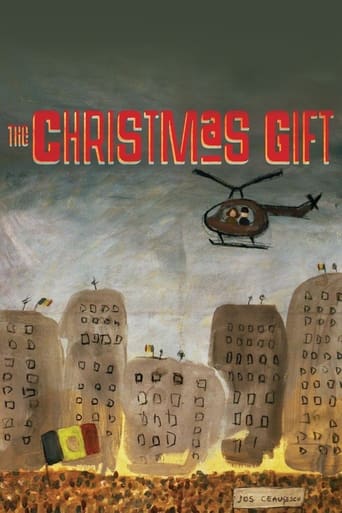
The Christmas Gift 2018
A son's letter to Santa for Christmas turns his father's evening into a thriller he did not ask for.
82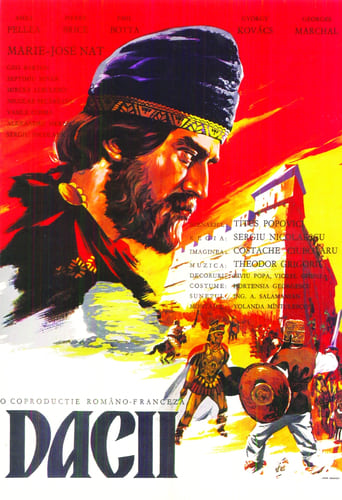
The Dacians 1967
The great King of Dacia, Decebal (Decebalus), is disposed to make the ultimate sacrifice in order to keep the integrity of his people. His own son, Cotyso, is given to the god Zamolxis to the dismay of the King and his daughter Meda. Septimius Severus, a young Roman devoted to his adopted country, must make the choice between his blood origins and the culture he was introduced to.
66
30 Years of Democracy 2019
Two journalists born in the mid '80s decide to take a look back at how their country changed in the last 30 years since the fall of communism. The end product is a documentary containing footage of political events and historical milestones significant to Romania accompanied by a narrator's voice walking the viewer through the events, and also interviews with Romanian politicians and other influential public figures sharing their thoughts and their different views on those events.
96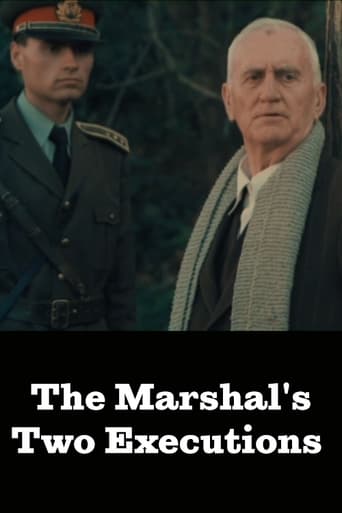
The Marshal's Two Executions 2018
Two different views of the execution of Romanian wartime dictator Ion Antonescu confront one another. On one side is silent footage recorded in 1946 by cameraman Ovidiu Gologan, and on the other side are scenes from a biographical film shot five decades later by director Sergiu Nicolaescu.
66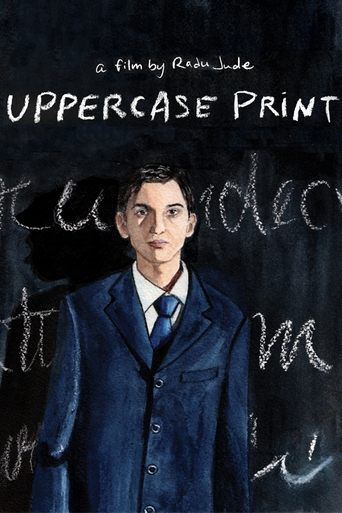
Uppercase Print 2020
In 1981, chalk slogans written in uppercase letters started appearing in public spaces in the Romanian city of Botoşani. They demanded freedom, alluded to the democratic developments taking place in Romania’s socialist sister countries or simply called for improvements in the food supply. Mugur Călinescu was behind them, who was still at school at the time and whose case is documented in the files of the Romanian secret police. Theatre director Gianina Cărbunariu created a documentary play based on this material.
66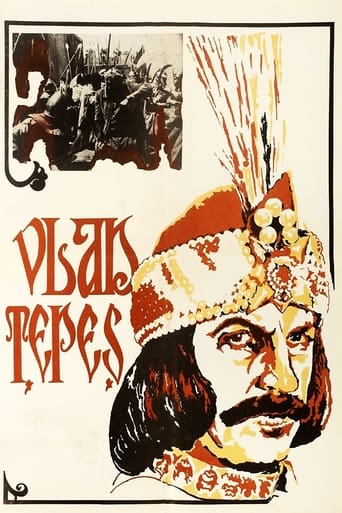
Vlad the Impaler: The True Life of Dracula 1979
Vlad Țepeş, otherwise known as Vlad the Impaler and Dracula, fights the Ottoman Turks on the battlefield and the Hungarian Boyars in his court.
71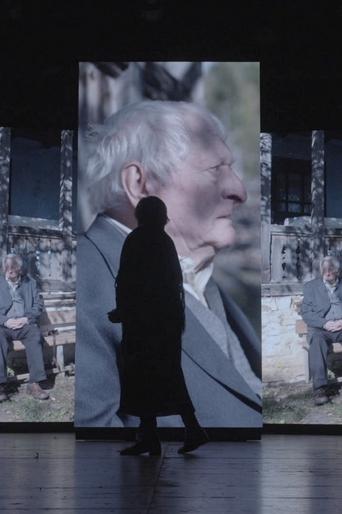
Spruce Forest 2025
The Spruce Forest explores one of the darkest pages in Romanian history. Inspired by the drama of Fântâna Albă on April 1, 1941, the film reconstructs the fate of a Romanian community in Bessarabia, massacred in a desperate attempt to find refuge from the Soviet occupation. The testimony of a survivor of this genocide becomes the backdrop against which archival images and his wife's memories of Siberia are superimposed, in a dizzying game of mirrors that questions the notion of historical truth and reveals forgotten traumas with potentially devastating consequences in the present.
86
Ion: The Lust for the Land, the Lust for Love 1980
Jon, a young peasant love more "the land" than his engaged girlhood, Florica.Just when Ion thinks he has become master of his own land, he realizes that he has betrayed his heart, and that he is still in love with Florica, not with his wife. It is the curse of love that will be Ion's undoing. Badly mistreated, Ana, his wife, is driven to despair and she hangs herself. Ion, now free and wealthy, believes that the time has come for him to have Florica. Florica's husband, George waylays Ion and savagely murders him with a hoe.
76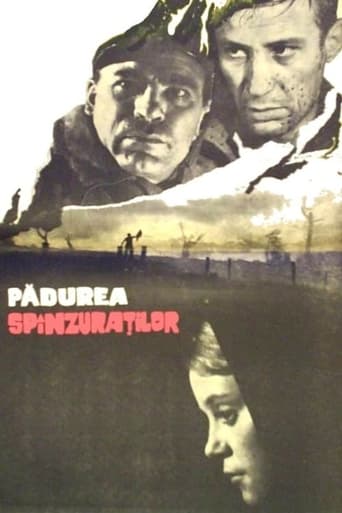
Forest of the Hanged 1965
In 1916 as an officer in the Habsburg Army ethnic Romanian Apostol Bologa is torn between remaining loyal to the Habsburgs or deserting to the Romanian Army across enemy lines.
64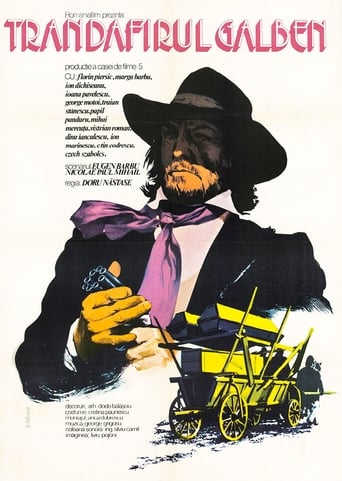
Yellow Rose 1982
The second movie in the "Margelatu" series. Continuing the adventure of the Road of the Eagles, the heroes of the movie led by Margelatu after a series of events and overcoming obstacles, bring in the country the weapons bought from Vienna with the money from the sale of the heirlooms and values left by Tudor Vladimirescu for this purpose. Thus, they contribute to the preparation of the 1848 revolution in the Romanian lands.
64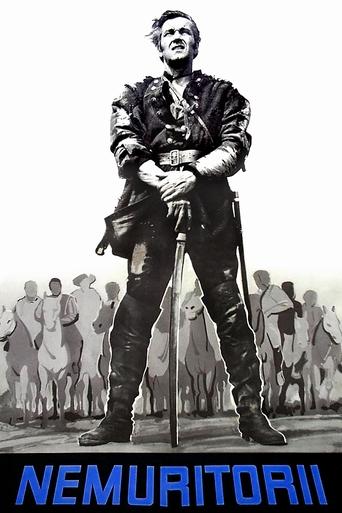
The Immortals 1974
It's the story of a few men that wonder across Europe trying to come home and rebuild what Mihai Viteazul called "Romanian dream".
64
Through the Ashes of the Empire 1976
A war story. survivors. refugees. few essential meetings. and great actors. a film inspired from Zaharia Stancu short story. about pain, search of sense in misty times, about roots of evil and price of survive, about a country as shadow and ruins of a empire. all in dark nuances, touching images. a movie like a ballad. heavy, strange, profound, harsh, cruel. with few drops of feelings as steps of rotten ladder. looks, silhouettes, way to ambiguous home. a thief and a young man. across Balkans. among ash of a fragile territory. the impressive aspect – silence. and gestures. the woman, the train. the escape. the bath. and the death of Diplomat. all – fragments of an old way to discover reality. all – words of a new world.
80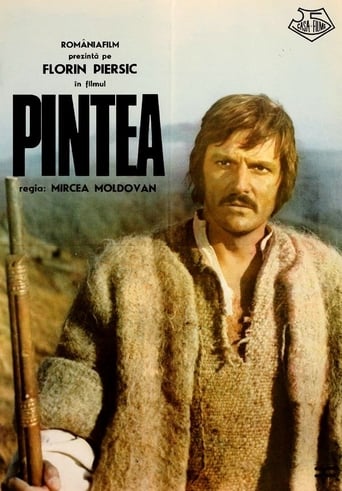
Pintea 1976
The movie is set in 18th century Maramureș region of Romania. The Romanian officer Grigore Pintea return to his village and finds out that his parents were killed, and other villagers were tortured because they protested against the unfair treatment of Bartolok Graff. He deserts the Austrian army and he becomes an outlaw. He is joined by many peasants and so his band manages to occupy 2 fortresses.
70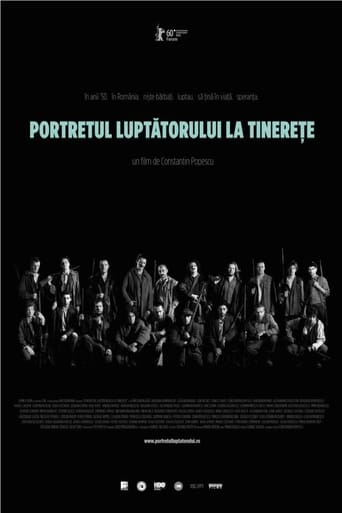
Portrait of the Fighter as a Young Man 2010
When the Soviet Army marched into Romania in 1944, a part of the Romanian population went “into the mountains” – a diverse assortment of nationalists and fascists, liberals, apolitical farmers and members of the middle-class, who were affected by the Communists’ expropriations. Over a thousand armed resistance groups took refuge in the inaccessible forests of the Carpathian Mountains where they waited in vain for the support of the Western Allies. One of them was led by Ion Gavrilă-Ogoranu, who managed to remain undetected until 1976 when he was arrested. This film depicts the daily existence of this group. It tells the story of a struggle that became an end in itself, as the enemy was constantly in pursuit and arrest meant torture and often liquidation. Hungry and emotionally withdrawn, the group of young men got entangled in a partisan war that could not be won, lost in the landscape of the South Carpathians, accompanied by a vigilant secret police, the Securitate.
65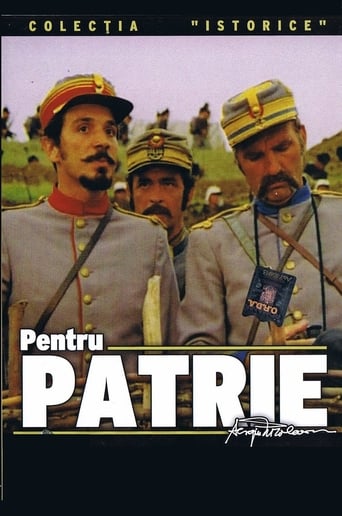
For Motherland 1977
In 1877 during the Russo-Turkish war the Kingdom of Romania joins the war on Russia's side and declares its independence from the Ottoman Empire.
68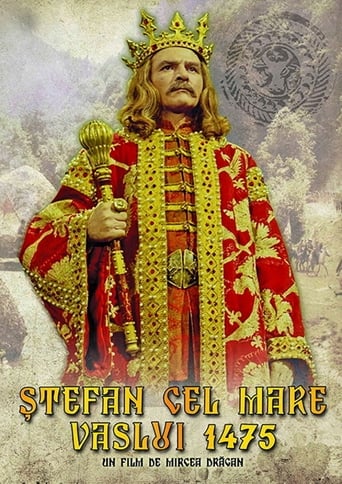
Stephen the Great: Vaslui 1475 1975
In 1475 when Stephen the Great, ruler of Moldavia is facing an invading Ottoman army of 120 000 men, the fate of Christian Europe largely depends on the battle's outcome.
70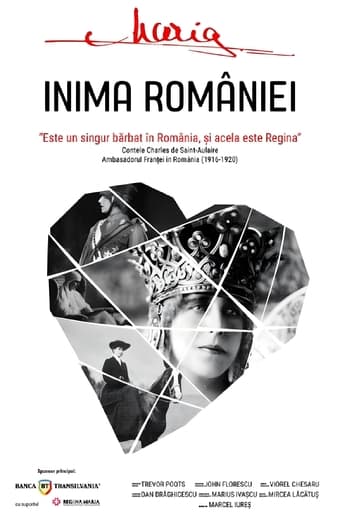
Maria Queen of Romania 2018
Queen Maria of Romania, granddaughter of Queen Victoria, ruled the country during World War I and 1918, achieving international recognition. Despite personal struggles, she was banished from court by Carol's son.
80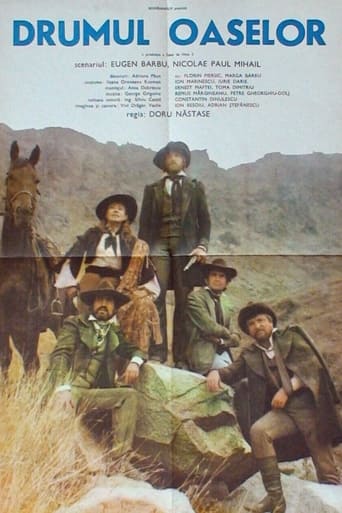
The Bone Srewn Road 1980
Margelatu, the feared criminal helps the Romanian resistance to fight the dictatorial authorities.
61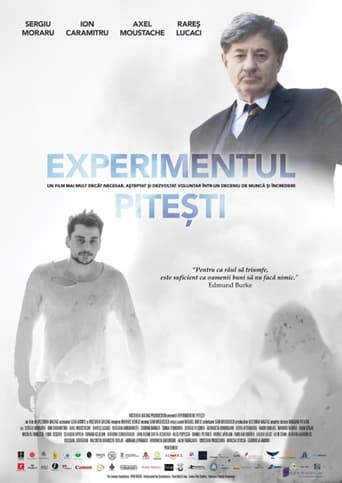
The Pitești Experiment 2022
The life story of Herman, a promising young man who under extreme circumstances changed into Romania's most effective torture machine in the infamous Pitesti Experiment during the Communist Regime
75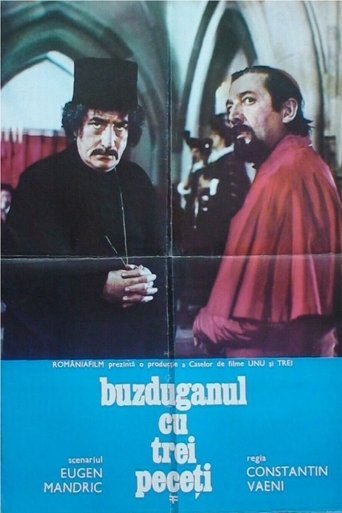
The Mace with Three Seals 1977
At the end of the 16th century, Wallachia's ruler Michael the Brave dreams of uniting the kingdoms of Wallachia,Transylvania and Moldavia into a single country known as The United Principalities.
75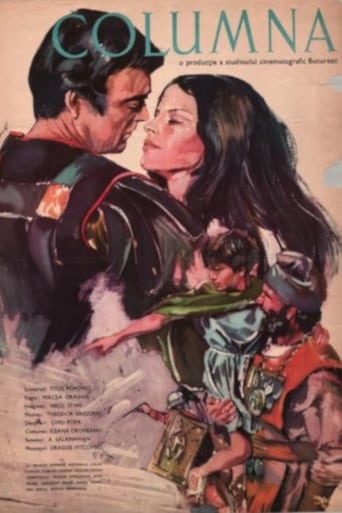
The Column 1968
The end of Trajan's Dacian Wars (106 AD), when south western Dacia was transformed into a Roman province: Roman Dacia.
61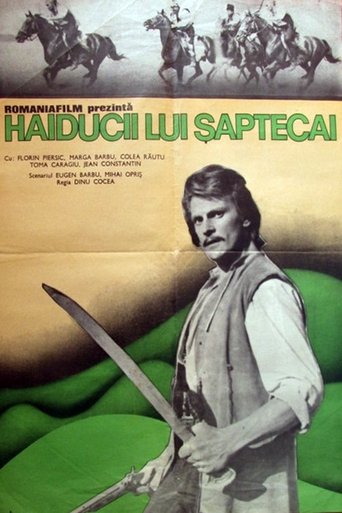
The Outlaws of Sevenhorses 1971
The third movie in the Haiducii series, set in Muntenia during the Phanariote period. Lady Ralu needs a million galbeni to buy a jewelry collection from Vienna. In order to satisfy her desire, the Phanariot ruler institutes the "birul vacăritului" (the tax on the cowherd), impoverishing the people. The band of outlaws led by Anghel Șaptecai, after the death of Captain Amza, tries to recover the galbeni, forcibly taken from the tormented people. In the end, captain Mamulos catches Anghel and sends him to the pit.
64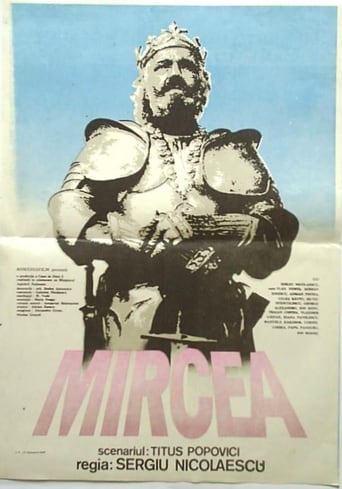
Proud Heritage 1989
After 1394 King Mircea the Elder, ruler of Wallachia, ponders the eventual consequences of a military alliance with the Poles versus one with the Turks.
59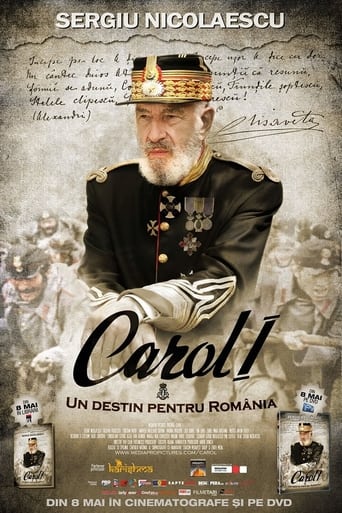
Carol I 2009
The last days of the first Romanian king, Carol I of Hohenzollern-Sigmaringen, and the tough decisions he had to make in the summer of 1914 in order to please both Romanian Parliament and his relatives from the German Empire.
70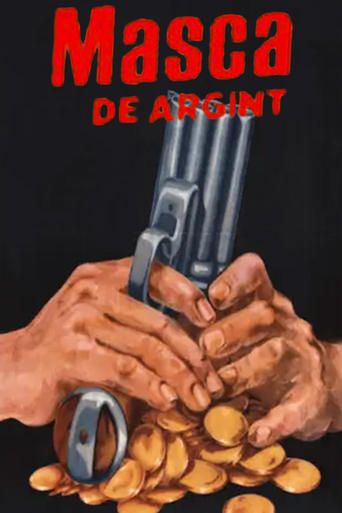
The Silver Mask 1985
Agatha Slatineanu, together with the alleged banker Troianoff, rob the boyar Valcu of a treasure collected in order to buy the throne. However, the gold is recovered by Margelatu for the benefit of the "Brotherhood".
61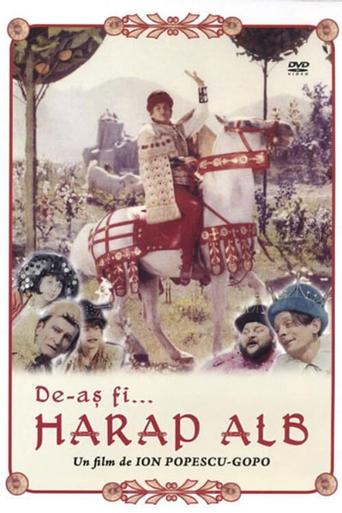
The White Moor 1965
Adapted from a folk legend, it tells the story of a bad-tempered nobleman and his chronically useless younger son - who dreams of being the mythical hero Harap Alb.
56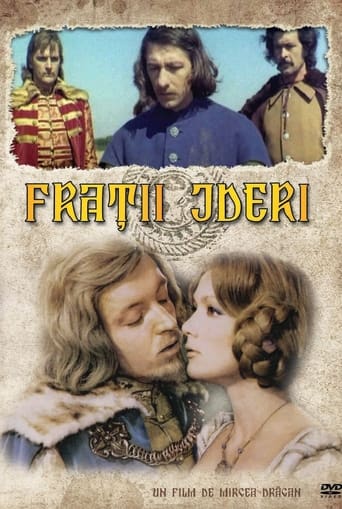
The Martens Brothers 1974
Historical movie based on the "The Martens Brothers" (Romanian: Frații Jderi) novel. Ionut is the youngest son of Commissar Jder, a trusted man of Stephen the Great. He falls in love with Nasta, the daughter of a boyar, and competes for her affections with Alexăndrel, the ruler's own son. His longing for Nasta gives impetus to Ionuț, who, together with his brothers, puts his life at the service of Moldavia.
60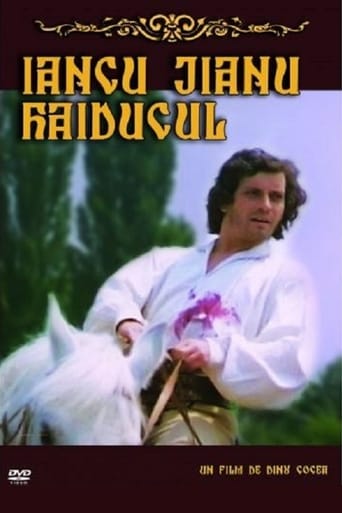
Iancu Jianu, Outlaw 1981
The movie is set in 1788-1843, a tumultuous era for Walla Wallachia, when the Phanariot regime was exercising its power over the people. In a world marked by oppression, the young Iancu Jianu becomes a symbol of resistance, fighting against abuses. Together with his friend Mereanu, Jianu plans courageous actions to stand up to the tyranny of the Phanariots and bring justice to the country. His journey brings him into contact with Tudor Vladimirescu, the leader of the 1821 rebellion movement, and the two unite in a fierce struggle for freedom and independence.
58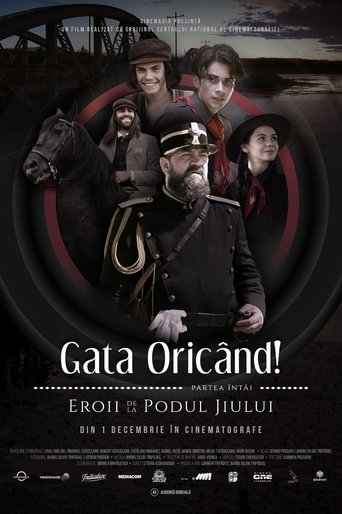
Gata Oricând!: partea întâi - Eroii de la podul Jiului 2022
On the morning of October 14, 1916, when a young scout discovers that the dreaded German army has arrived unhindered near Târgu-Jiu, he hurriedly informs the city commissioner Ioan Popilian and, together with some policemen and scouts, helped by some civilians remaining in the already evacuated city, fights at the Jiului Bridge to stop the enemy from occupying the city until the arrival of the Romanian army. The occupation of the bridge would have led to the occupation of the railway station, which would have allowed the German army to stop the retreating Romanian army. A movie based on a true story.
65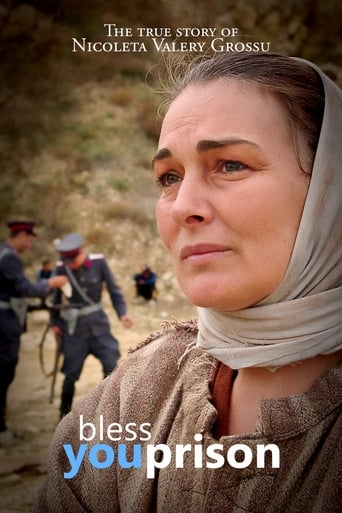
Bless You, Prison 2002
Based on Nicole Valery-Grossu's European best seller autobiographic novel "Bless you, prison", the film is a true story, with real events and characters. A young intellectual woman, Nicole is arrested. There follow three months of exhausting interrogation and isolation. Alone in a cell, she undergoes a spiritual experience similar to that of the great mystics.
55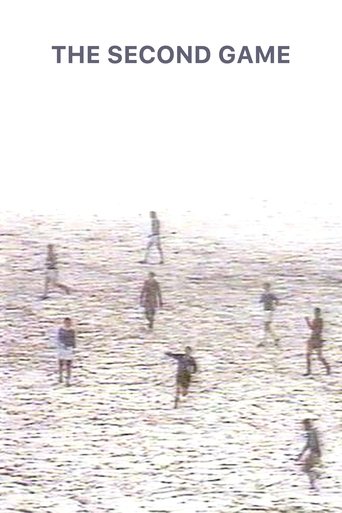
The Second Game 2014
A deceptively simple set-up: the director and his father watch a 1988 football match which the father refereed, their commentary accompanying the original television images in real time. A Bucharest derby between the country’s leading teams, Dinamo and Steaua, taking place in heavy snow, one year before the revolution that toppled Ceaușescu.
52
The Outlaws 1966
First of 2 films set during the 18th century in the mountains of Wallachia, about a band of outlaws aiming to undermine the rule of the Phanariots and the Ottomans. The story evolves around the two stepbrothers who lead this band, Sarbu and Amza, with their complex and violent relationship.
52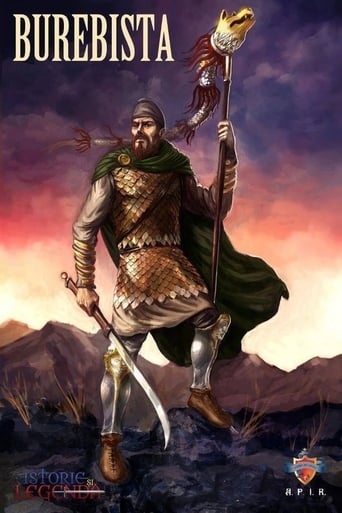
Burebista 1980
The life of Dacian war-leader Burebista who ruled between 80-44 B.C.and founded a strong Dacian Kingdom despite considerable pressure from the neighboring Celtic warlords and the Greek cities of the Black Sea coast.
51
Iancu Jianu, Tax Collector 1981
The movie details the struggle of Iancu Jianu as he's torn between joining the struggle of the poor peasants from which he came from and being on the other side of the law working for the rich.
55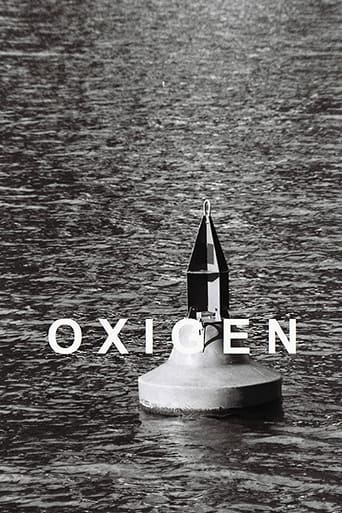
Oxygen 2010
Oxygen is a free re-enactment of a real case: a man who tried to cross the Danube illegally using an oxygen cylinder, to escape the communist Romania.
60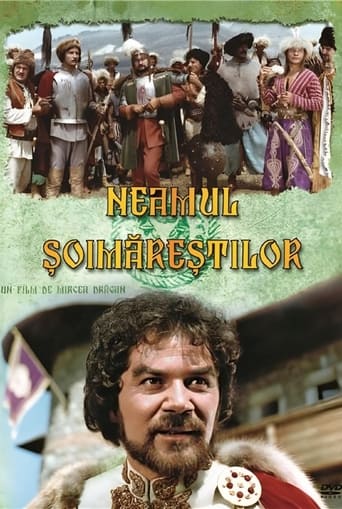
The Soimaresti Clan 1965
Vying for Principality of Moldavia's throne the descendants of Prince Stephen the Great start a bloody civil war in 1612.
55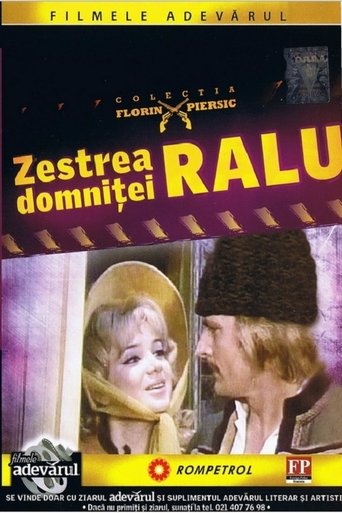
The Dowry of Lady Ralu 1972
Part two of the triptych dedicated to the outlaw Șaptecai and episode 5 of the Outlaws series. After a spectacular escape plotted by Anița, Răspopitul and Parpanghel, Captain Anghel sets off once again on the money trail. Kidnapping Caliopi, Șaptecai demands the jewels her husband Ianis bought in Vienna in exchange for her release. After a series of spectacular events, Anghel succeeds in stealing Lady Ralu's precious dowry.
53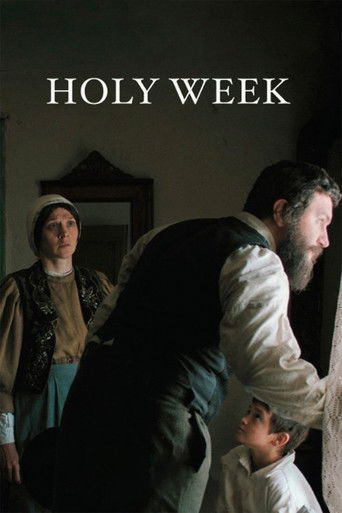
Holy Week 2024
The Holy Week, around 1900, somewhere in Romania. The tense relationship between the Jewish innkeeper Leiba and Gheorghe, his Christian employee, reaches the point where the innkeeper decides to expel the latter. Revengeful, Gheorghe promises Leiba that he will return on Easter Night to “settle” his accounts. This threat comes as a last straw against Leiba’s attempts to cohabit with his hostile, anti-Semitic environment. From then on, Leiba will struggle distinguishing between the real danger and the one fabricated by his anxieties, engaging onto a path of transformation leading to extreme consequences.
53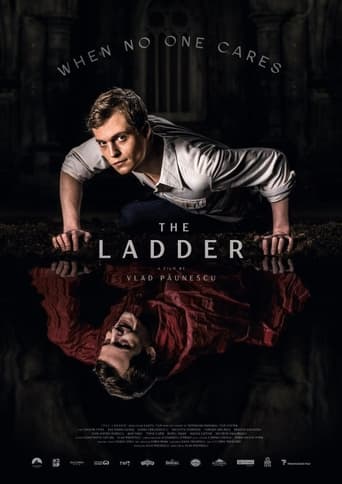
The Ladder 2021
Based on true events, The Ladder follows the spiritual journey of Andrei, a sensitive, socially awkward young man who turns to acting in his search for true happiness. After the fall of communism, he is blinded by the illusion of freedom and democracy and faces a series of brutal events that have deeply marked Romania's recent history. Finding comfort in playing the part of Aliosa in a stage adaptation of The Karamazov Brothers, he becomes closer and closer to his character, gradually discovering the way to understanding divinity.
50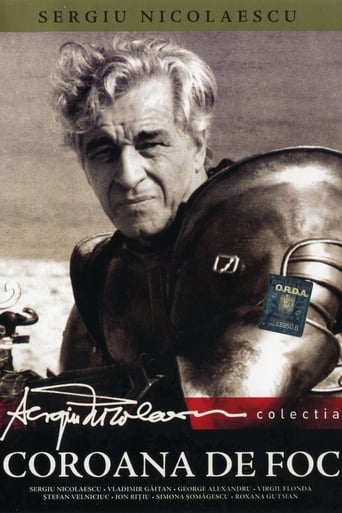
The Crown of Fire 1990
In medieval Wallachia a young prince battles his twin brother for their father's throne and for their ancestors' crown of fire.
50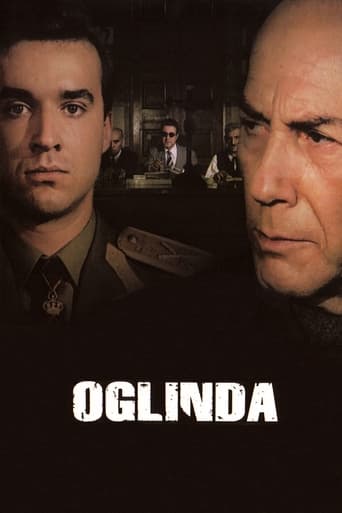
Mirror 1994
Depicts Romania during World War II, focusing on the Royal Coup that toppled Ion Antonescu, the Axis-allied Conducător and authoritarian Prime Minister. Focused around the August 23rd 1944 coup against Marshal Antonescu, the movie also tackles other topics from the same era such as the Iron Guard rebellion and the execution of political leaders by communists.
50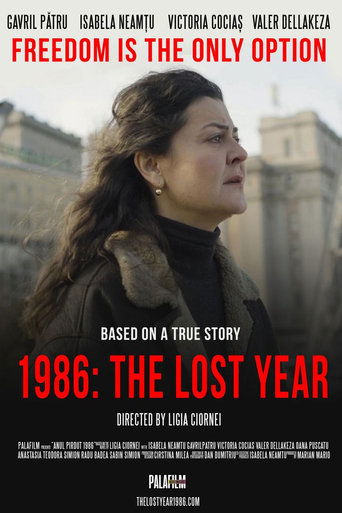
The Lost Year 1986 2022
32 years after the fall of communism and one hundred years after the founding of the Romanian Communist Party, three young independent filmmakers set out to make their feature film debut with a film about an invisible enemy, the radioactive cloud since 1986. Although a large part of the artistic team of the film The Lost Year 1986 was born after the 1989 Revolution, they will tell with humor and sincerity the story of a family from a village in communist Romania, affected by the Chernobyl nuclear accident.
43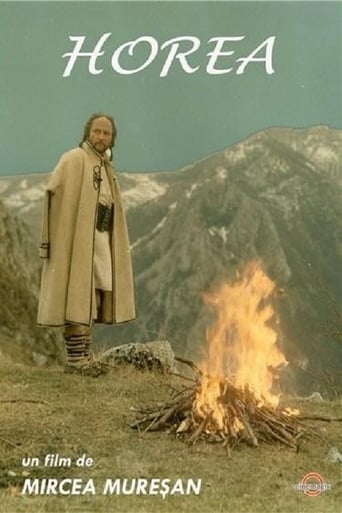
Horea 1984
Cinematic evocation of the Horea, Cloşca and Crişan.
50The Independence of Romania 1912
The movie depicts the Romanian War of Independence (1877-1878).
50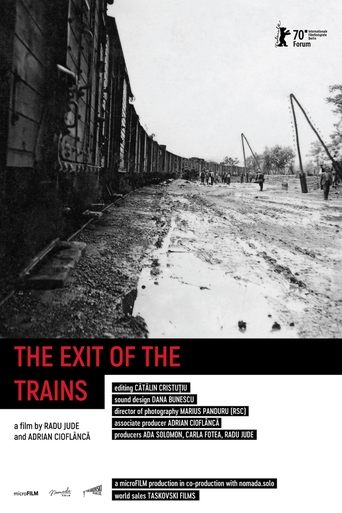
The Exit of the Trains 2020
A film composed entirely of archival photographs and documents related to the Iași Pogrom of June 1941. The first part of the film consists of photographs of the victims, accompanied by statements and testimonies about their fate. The second part, shorter, is a montage of photos of the pogrom itself.
50
Enescu, Skinned Alive 2024
Brilliant composer and violinist George Enescu is at the peak of his career and wants to compose an opera. He falls in love with a princess, Maruca, who inspires and challenges him. She is fascinated by Enescu and his music, she loves him passionately, but has a duty towards her husband and her two children. Destiny will release her from the chains of marriage, but will that be enough for the genius and the princess to live happily ever after?
50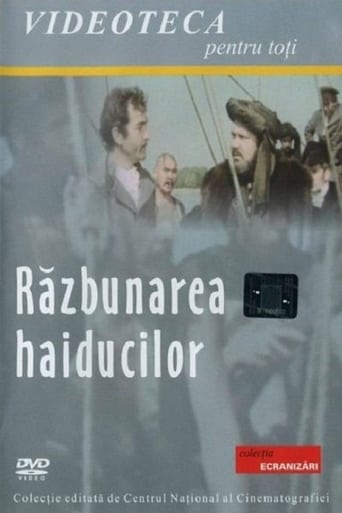
The Revenge of the Outlaws 1968
Second of 2 films set during the 18th century in the mountains of Wallachia, about a band of outlaws aiming to undermine the rule of the Phanariots and the Ottomans. The story evolves around the two stepbrothers who lead this band, Sarbu and Amza, with their complex and violent relationship.
46
Tudor 1963
Tudor Vladimirescu fights against the Ottoman Turkish domination of Romania and the social agitation ,his story includes the war between Russia and Turkey from 18o6 to 1812,for which he was decorated by the Russians.
43
The Return of King Lapusneanu 1980
Alexandru Lapusneanu is one of important Moldavian rulers. A Macbeth figure, who obtains his throne in fight, who reeves any possible danger out of his way, a good "hospodar", husband and father. His reign is result of relation with the Great Powers of the XVIth century. The strain relation with the boyars (noblemen), the economic and spiritual contribution in the country's development, tensions of his own family, the loss of reign and the revenge, the second reign are elements for define the man and the prince like touching character
40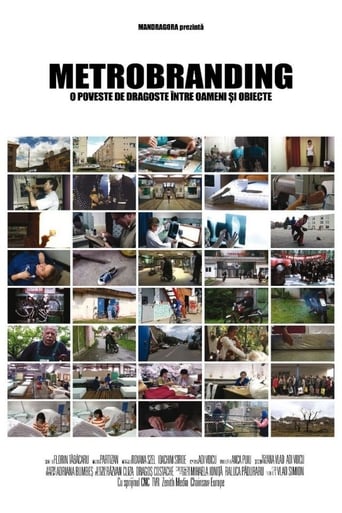
Metrobranding 2010
While people in Western Europe were used to choose between hundreds of brands, the communist Romanian used to have a different experience: all our life we lived with only one brand for each basic product. Imagine the importance that this 'mono-brands' could acquire for the lives of those who made them and for the lives of those who consumed them. A love story between man and object.
40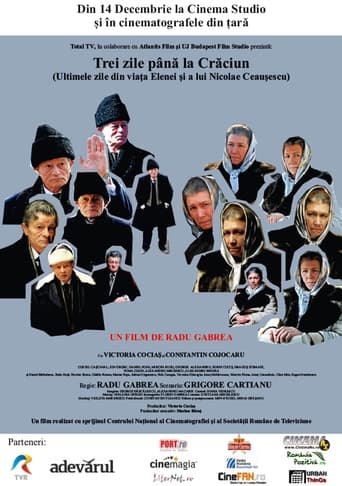
Three days 'till Christmas 2012
Historical Docudrama, which describes accurately - based on evidence, documents, reconstructions and archive footage - the last days of life spouses Nicolae and Elena Ceausescu. Main performers, Victoria Cocias (Elena Ceausescu) and Constantin Cojocaru (Nicolae Ceausescu).
40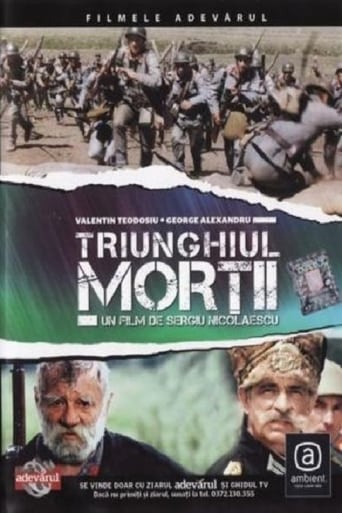
The Death Triangle 1999
The Romanian army faces the German army in the epic battles of Marasti, Marasesti and Oituz, marking a turning point in World War 1.
40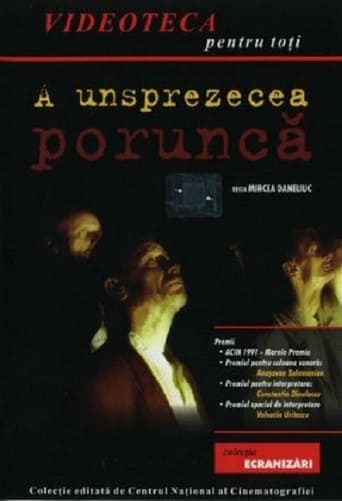
The Eleventh Commandment 1991
Free adaptation of the book "The Pitesti phenomenon" by Paul Goma. The last days of World War II. All people resembling Adolf Hitler, Eva Braun, Goebbels, Bormann and other Nazi leaders are arrested and taken to a camp so that the real fascist criminals can be discovered and punished. Thus begins the long nightmare of these characters, who will suffer for unproven crimes. For a year they will live in total isolation from the rest of the world, living a hellish existence.
40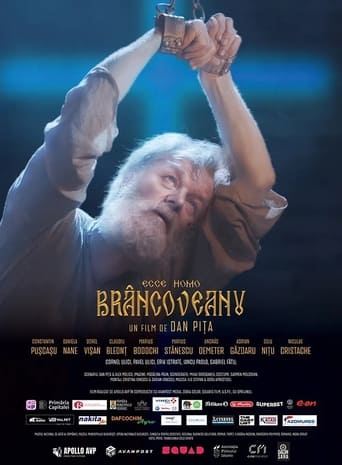
Ecce Homo Brâncoveanu 2024
A parable about honor and true character, inspired by the reality of the 18th century. Constantin Brâncoveanu preferred to be beheaded in Constantinople alongside his four sons - Constantin, Stefan, Radu, and Matei - as well as by his counselor Ianache Vacarescu, instead of renouncing the Christian faith.
40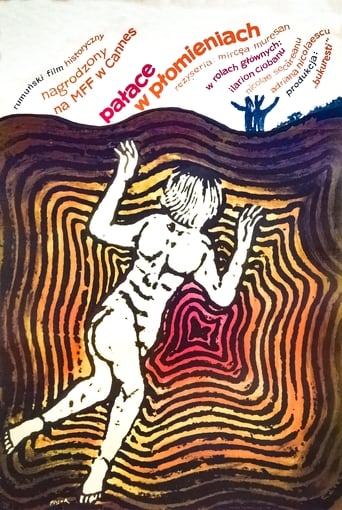
The Uprising 1966
After years of deplorable conditions of poverty and injustice, peasants revolt against the landowners, the social elite, and police in this routine social drama. A peasant woman is raped by a lecherous wealthy lesbian, and chaos breaks out in the rural areas where the poor suffer the most from the oppressive social and economic conditions.
30
January Dream 1979
Young Moldovan nobles try to overthrow King Mihail Sturdza. They plot an assassination and spread flyers. On this backdrop, there is a romance story between Franz Liszt, in tournament, and one of the noblemen's daughter, who is close to the plotters.
30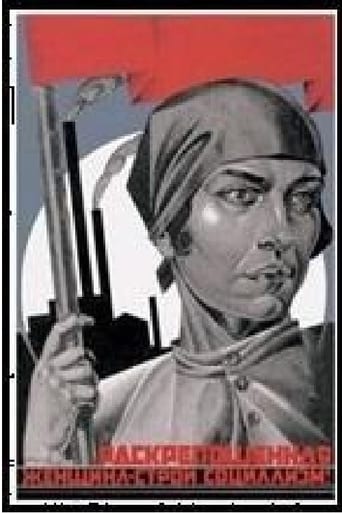
Phalanstery 1979
In the early 19th century the Romanian Theodor Diamant was inspired by the French utopian socialist Charles Fourier and established one of Fourier's "phalansteries" in Rumania. The film dramatizes the origins and demise of this effort, called the "Scaieni Phalanstery (the term is derived from "phalanx" and "monastery"). Among the socio-political commentary that is conveyed throughout, there is an important collusion between the army and the wealthy landowners of the time, and as the film points out in its own way, neither of these groups has ever been convicted of socialist/utopian tendencies.
30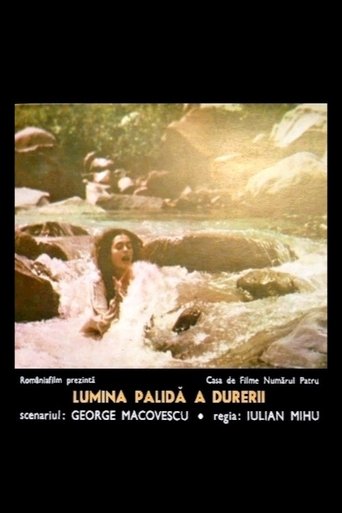
The Pale Light of Sorrow 1980
Summer 1913, in a village near Buzăul. Ionica, the schoolteacher's son, witnesses the hard life of the poor villagers. The war is coming and his landless neighbors have to work 16 hours a day at the oil wells for miserable wages. Is there hope for them?
20Maledictis 2022
During the anti-communist uprisings of the late 1950s, a writer of comedic poems against socialism was constantly pursued by Securitate troops.
10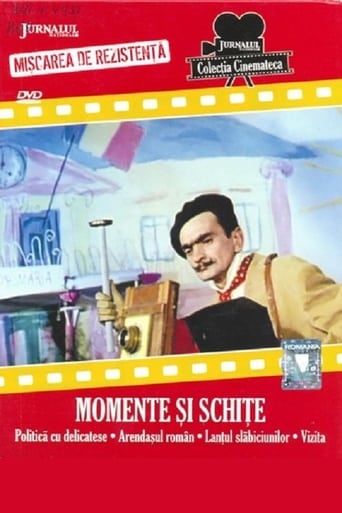
Romanian Farmer 1952
10